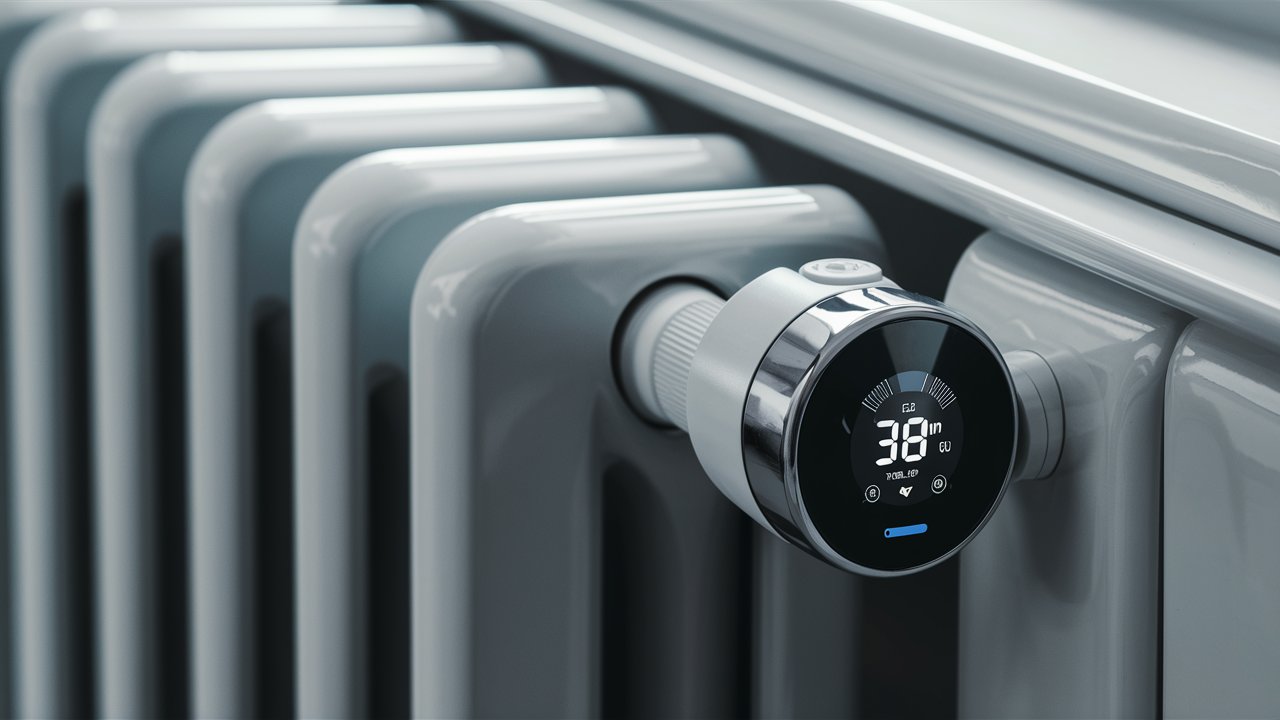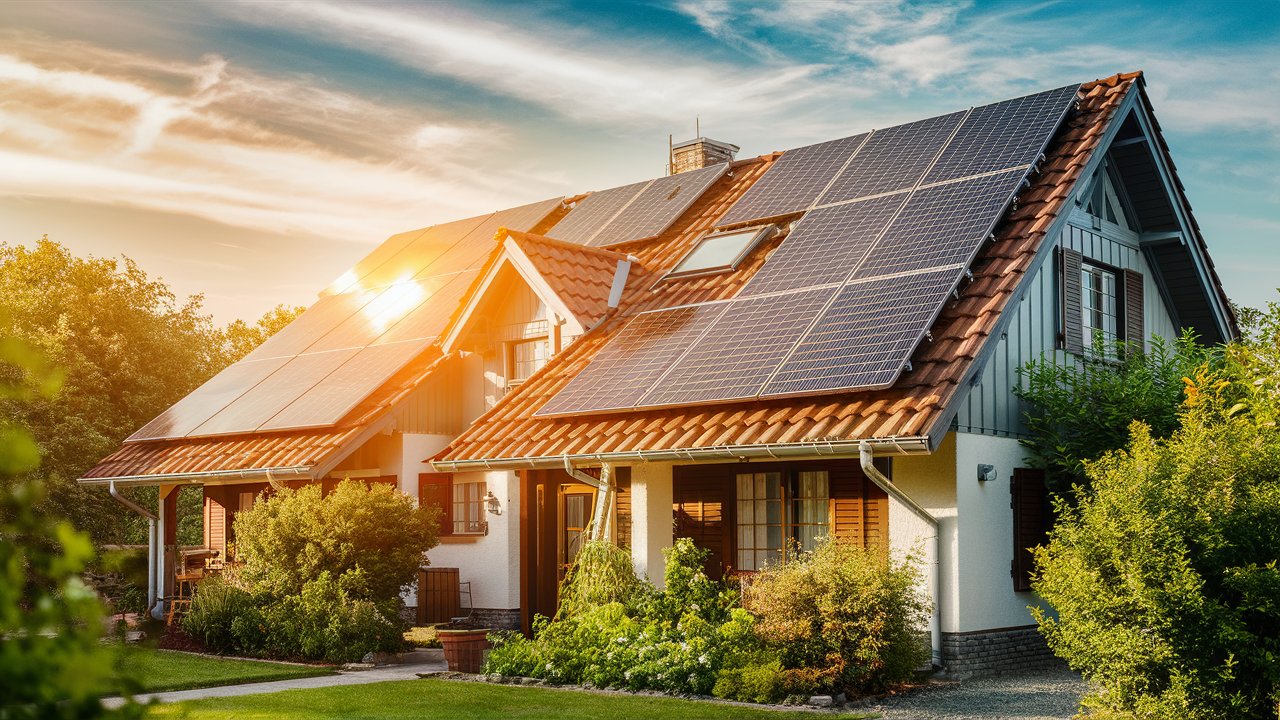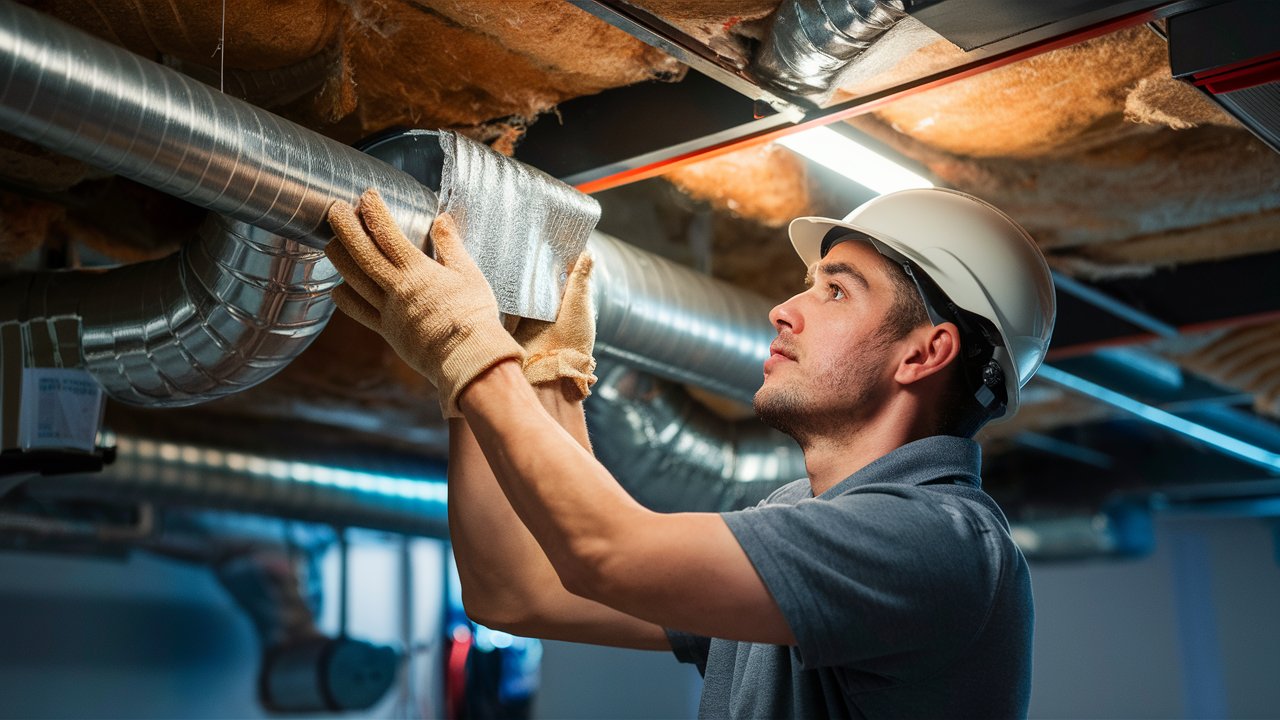10 Smart Ways to Save Heat Energy and Cut Your Bills This Winter

As summer comes to an end, many people start to worry about the looming high energy bills due to increased heater usage. Heating units consume much energy from the power grid, leading to higher costs. This might leave you asking, "How can I save heat energy?"
With our 10 heat energy-saving tips, you'll be prepared for the winter months without the stress of soaring energy bills. These tips will help you stay warm and comfortable while keeping your expenses low. Here are the top 10 ways to save heat energy and prepare your home for winter.
Why Save Heat Energy?

Before diving into the 10 ways to save heat energy, it's essential to understand why it's important. Energy costs can take up about 5 to 20% of your annual household budget, and these costs can spike in winter due to high heater usage (Energy Saving Trust). Winter is harsher in some parts of the UK, leading to increased heating needs and, consequently, higher bills.
To illustrate the potential savings, consider the following table comparing traditional heating methods with energy-saving strategies:
|
Method |
Average Annual Cost |
Potential Savings |
|
Traditional Heating |
£1,200 |
- |
|
Home Energy Audit & Improvements |
£1,000 |
£200 (17%) |
|
Efficient Heating Systems |
£950 |
£250 (21%) |
|
Weatherproofing |
£900 |
£300 (25%) |
|
Underfloor Heating |
£850 |
£350 (29%) |
|
Attic and Basement Insulation |
£800 |
£400 (33%) |
|
Smart Thermostat |
£750 |
£450 (38%) |
|
Solar Energy |
£700 |
£500 (42%) |
|
Improved Air Ducts |
£650 |
£550 (46%) |
|
LED Lighting |
£600 |
£600 (50%) |
|
Blankets and Warm Clothing |
£550 |
£650 (54%) |
Sources:
- Energy Efficient Home - Invest To Save On Your Energy Bills (Energy Efficient Home)
- Green Deal: energy saving for your home (GOV.UK)
- How to save energy and lower your bills (Help for Households)
- Energy saving measures boost house prices (GOV.UK)
With Meteor Electrical's 10 ways to save heat energy, you'll learn how to cut down on costs effectively while maintaining a warm home. Start implementing these tips before winter to conserve heat energy efficiently.
This approach helps you save money and contributes to a more sustainable environment. By reducing your energy consumption, you lower your carbon footprint, helping to combat climate change. So, let's dive into the top 10 ways to save heat energy and make your home more energy-efficient this winter.
1. Audit Your Home’s Energy Use

One of the most important steps in saving heat energy is auditing your home's energy use. A home energy audit, or assessment, can significantly improve your household's efficiency and comfort. This audit provides extensive data on your energy use and highlights areas you can enhance (Energy Saving Trust).
A certified professional auditor can evaluate your house and identify energy-saving opportunities, recommending multiple improvements to help you get started. Alternatively, you can conduct a basic audit yourself. Professional audits, which can range from quick to thorough, provide detailed information about your home's energy use and often include a home energy score to measure your energy performance against national averages (Gov. uk).
2. Make Your Heating Systems Efficient

If you prefer not to conduct an energy audit, there are still ways to save energy at home. One of the quickest ways is to make your heating system efficient. Start by regulating your heater’s thermostat. Set it around 20 degrees Celsius in winter and lower the temperature at night or when you're away (British Gas).
Keep curtains, blinds, or shades open during the day to let in sunlight and close them at night to retain heat. Ensure windows and doors are closed when the heater is running and keep air vents clear of obstructions. Consider using smart heating systems for more efficient and cost-effective heating (The Guardian).
3. Weatherproof Your Home

Weatherproofing is a cost-effective method to conserve heat energy. It involves adding insulation and sealing air leaks in your home’s infrastructure, which can keep your home warm even during severe winters. This process can significantly cut heating costs by preventing drafts and chilly air from entering your home (BBC).
Tips for Implementing Weatherproofing:
- Seal Windows and Doors: Use weatherstripping or caulk to seal gaps around windows and doors. This prevents cold air from seeping in and warm air from escaping.
- Add Insulation: Insulate walls, floors, and ceilings to retain heat. Consider using materials like fibreglass, foam, or cellulose.
- Install Storm Windows: Storm windows provide an extra layer of insulation and help reduce heat loss.
- Use Draft Stoppers: Place draft stoppers at the base of doors to block cold air from entering.
4. Use Energy-Saving Underfloor Heating

Energy-saving underfloor heating turns your floor into a radiator, warming your home from the ground up. This system provides even heat distribution compared to standard heating methods, making it more efficient and reducing the risk of overheating and energy wastage (Which?).
Tips for Implementing Underfloor Heating:
- Choose the Right System: Decide between electric and water-based underfloor heating systems. Electric systems are easier to install in existing homes, while water-based systems are more efficient for new builds.
- Professional Installation: Hire a professional to ensure the system is installed correctly for optimal efficiency.
- Combine with Smart Controls: Use a smart thermostat to control your underfloor heating, allowing you to set schedules and adjust temperatures remotely.
5. Insulate Your Attic and Basement

Insulating your attic and basement prevents warm air from escaping, keeping your home warm during winter without relying heavily on heating systems. This can lead to significant savings on your energy bill as insulation helps maintain the warmth in your home throughout the night (Energy.gov).
Tips for Implementing Attic and Basement Insulation:
- Attic Insulation: Install insulation between the attic floor joists to prevent heat from rising and escaping through the roof. Consider using blown-in insulation for hard-to-reach areas.
- Basement Insulation: Insulate basement walls and floors to keep the cold out. Use foam board insulation or spray foam for effective coverage.
- Check for Air Leaks: Seal any gaps or cracks in the attic and basement to enhance the insulation’s effectiveness.
- Use Radiant Barriers: In the attic, consider installing a radiant barrier to reflect heat back into your home, further reducing heat loss.
Want to learn more about insulating your home? Here’s a great video to get you started!
Credit: Which?
6. Install a Smart Thermostat

Smart thermostats regulate your home's temperature more efficiently, saving you money on energy bills and creating a comfortable environment. These devices learn your preferred temperatures and establish a schedule that automatically adjusts the temperature for optimal energy savings when you're away or asleep (The Telegraph).
7. Consider Solar Energy

Imagine harnessing the power of the sun to keep your home warm and cosy during the cold winter months. If you live in an area with ample sunlight, investing in solar energy can be a game-changer. Solar energy not only reduces your household's energy demand but also slashes your heating costs significantly (The Independent).
Tips for Implementing Solar Energy:
- Assess Your Home’s Solar Potential: Determine if your home gets enough sunlight by checking the orientation and shading of your roof. Tools like Google's Project Sunroof can help with this assessment.
- Choose the Right Solar Panels: Select high-efficiency solar panels that suit your budget and energy needs. Look for reputable brands with good warranties.
- Consider Solar Water Heating: In addition to generating electricity, solar panels can be used to heat water, providing a cost-effective way to support your home’s heating system.
- Pair with Energy Storage: Invest in a solar battery storage system to store excess energy generated during the day. This allows you to use solar power even when the sun isn't shining.
- Take Advantage of Incentives: Look for government incentives, rebates, and tax credits that can reduce the initial cost of installing solar panels. Programmes like the UK’s Smart Export Guarantee (SEG) can also help you earn money by selling excess energy back to the grid.
- Professional Installation: Ensure your solar panels are installed by certified professionals to maximise efficiency and compliance with local regulations.
By considering solar energy, you can tap into a renewable and sustainable energy source that not only benefits your wallet but also the environment. Imagine a winter where your heating costs are slashed, and you’re making a positive impact on the planet—all thanks to the power of the sun.
8. Improve Your Air Ducts

Properly sealed, sized, and insulated air ducts are crucial for efficient heating. Fixing blocked air vents, sealing leaks, and ensuring adequate insulation can prevent warm air from escaping, reducing energy bills (National Energy Foundation).
9. Switch to LED Lighting

Switching to LED light bulbs can help you save money on energy bills, creating room in your budget for heating costs. LEDs use 75% less energy than traditional incandescent bulbs and last much longer, providing significant savings over time. Consider our range of high-grade Kosnic LED solutions for high-intensity brightness at a fraction of the cost (Energy Saving Trust).
10. Stay Warm with Blankets and Clothing

Wearing extra layers and using blankets is one of the most cost-effective ways to stay warm. Switching to warm-weather clothing materials during winter can help conserve body heat, reducing the need for heating (BBC).
Key Takeaway
By following these 10 tips from Meteor Electrical, you can efficiently heat your home without breaking your budget. Visit Meteor Electrical to find a range of energy-saving products and make your house winter-ready. Check out our blog on Energy Saving Tips in your Home and Office for more information.
FAQ: Saving Heat Energy
Q1: What are the most effective ways to save heat energy at home?
A1: Some of the most effective ways to save heat energy include weatherproofing your home, using energy-saving underfloor heating, insulating your attic and basement, installing a smart thermostat, and considering solar power.
Q2: How can I weatherproof my home to save energy?
A2: Weatherproofing your home involves sealing gaps and cracks around windows and doors with caulk or weatherstripping, adding insulation to walls and roofs, and using draft stoppers under doors. These measures help prevent warm air from escaping and cold air from entering, thus conserving heat energy.
Q3: Is underfloor heating more efficient than traditional heating methods?
A3: Yes, underfloor heating is generally more efficient than conventional heating methods. It provides even heat distribution, reduces the risk of overheating, and can be more cost-effective in the long run. It also creates a comfortable environment by warming the room from the ground up.
Q4: How does attic and basement insulation help save on heating costs?
A4: Insulating your attic and basement prevents warm air from escaping, keeping your home warmer during winter. This reduces the need for constant heating, leading to significant savings on your energy bill.
Q5: Can a smart thermostat really save energy?
A5: Absolutely. Smart thermostats learn your heating preferences and adjust the temperature accordingly. They can be programmed to lower the heat when you’re not home or asleep, reducing unnecessary energy consumption. Many models can also be controlled remotely via smartphone apps.
Q6: Is solar energy a viable option for heating my home?
A6: If you live in an area with ample sunlight, solar energy can be a very viable and cost-effective option. Solar panels can generate electricity to power your heating system, reducing your reliance on the grid and lowering your energy bills. Additionally, solar water heaters can provide hot water for heating.
Q7: What are some simple and inexpensive ways to save heat energy?
A7: Simple and affordable ways to save heat energy include using heavy curtains to retain heat, placing draft stoppers under doors, wearing extra layers of clothing, and using blankets. Switching to LED lighting can also save on overall energy costs, freeing up more of your budget for heating.
Q8: How can I determine if my home is energy efficient?
A8: Conducting a home energy audit is the best way to assess your home’s energy efficiency. A professional auditor can identify areas where you’re losing heat and suggest improvements. Alternatively, you can perform a basic DIY audit by checking for drafts, inspecting insulation, and monitoring your energy bills for unusual spikes.
Q9: Are there government incentives for implementing energy-saving measures?
A9: Yes, many governments offer incentives, rebates, and tax credits for implementing energy-saving measures. In the UK, for example, you might benefit from schemes like the Smart Export Guarantee (SEG), which pays you for the excess energy your solar panels generate and export to the grid.
Q10: How do I choose the right insulation for my home?
A10: The right insulation for your home depends on your specific needs and budget. Common types include fibreglass, foam board, spray foam, and cellulose. Before you start, consider the R-value (a measure of insulation’s effectiveness), ease of installation, and whether you’re insulating walls, floors, or the attic. Consulting with a professional can help you make the best choice for your home.
By addressing these frequently asked questions, you can make more informed decisions about how to save heat energy and reduce your energy bills effectively.

